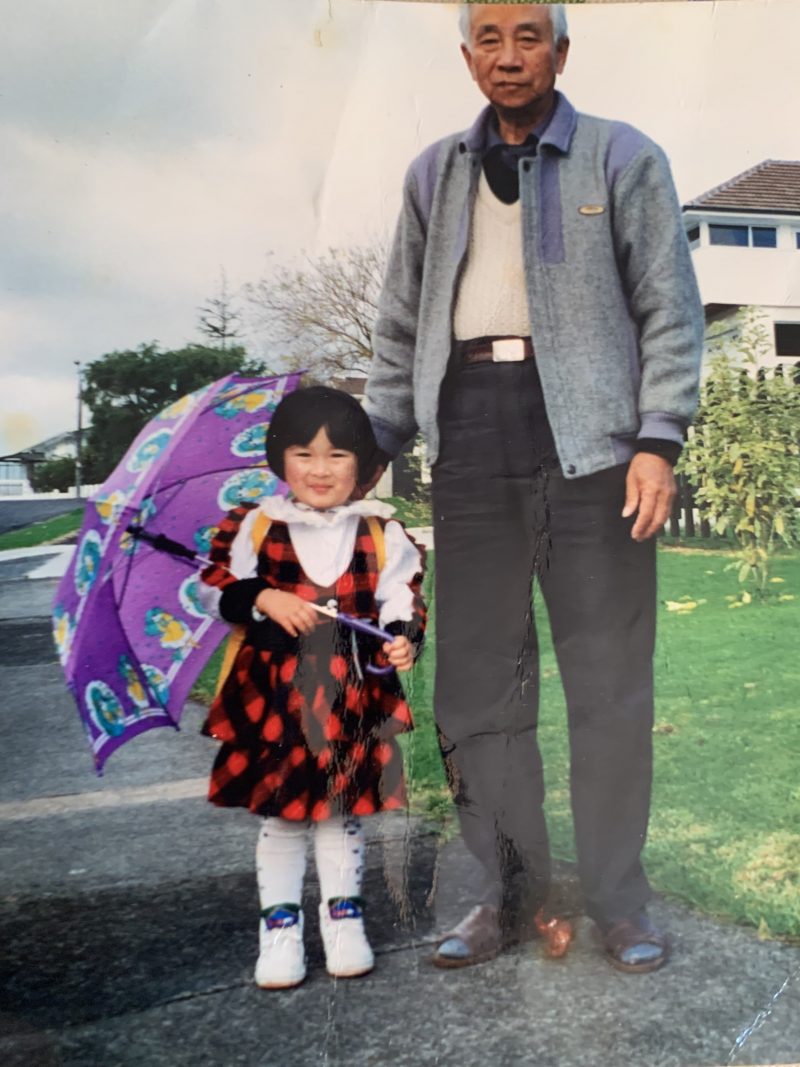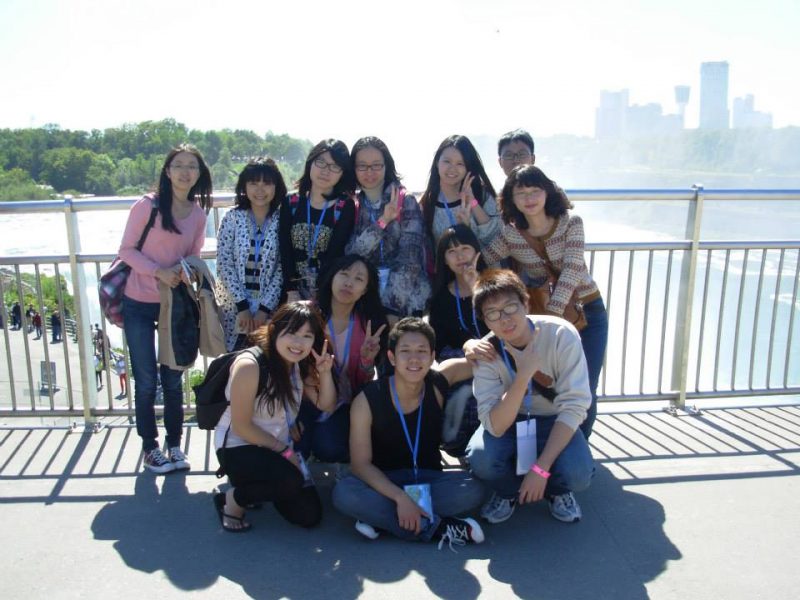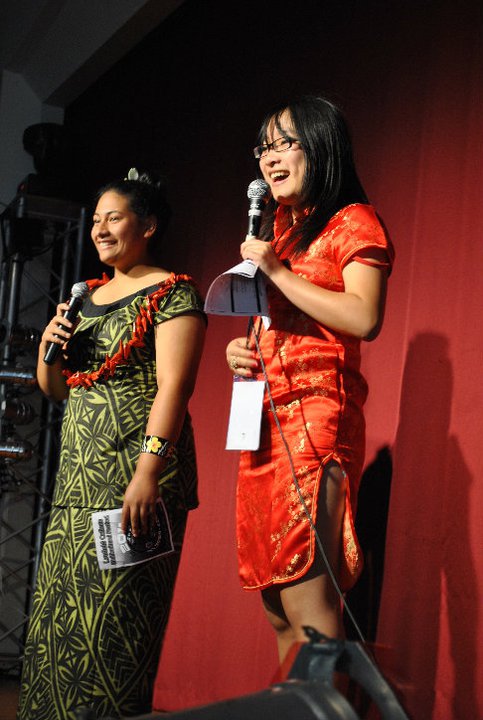Bananas: Learning to Love Being Asian Growing Up in a Whitewashed Society
Editor’s Note: The following piece was chosen as the runner-up of NextShark’s personal Essay Contest 2019. The views expressed in story are the writer’s own.
My Granddad loved bananas. Whether they were pale yellow just blossomed from green or a golden yellow with black and brown freckles, it didn’t matter. He said it was because he had a full set of false teeth, and that bananas were easy to chew. So he would ride on his Frankenstein bicycle made up from parts of different bikes that he had salvaged to the nearest fruit shop and buy bananas.
My Granddad, or Gong Gong as I called him, was my everything for the first 5 years of my life. My parents were typical immigrants who had come over to New Zealand with barely any money. They had met in English class, and had gotten married in a register’s office with no wedding because they were saving for the future and couldn’t afford it. They both had to work full time to pay for the mortgage, support a growing family and fulfill the dreams of living in comfort that had kept them warm on the plane to New Zealand on a one way ticket. So Gong Gong would be the one who was left to entertain me and my little brother, taking us to playgrounds and being the pusher for swings. He couldn’t speak a lick of English, and as a result, I couldn’t either, even though I was born in an English-speaking country.

When I was 3, I had to go to preschool. For most kids, this is the first time they’re left by themselves without a parental figure for half a day. That wasn’t the case for me, because my Granddad stayed with me everyday those two years of preschool. I would throw a fit if I thought he was leaving. Because I knew I was different, and I didn’t want to be alone. Everyone else was white and could speak English. I was 100% Chinese and too shy to try out English in case they laughed at me. I looked different, sounded different, acted different. I knew it, but I didn’t know what to do about it- so I didn’t do anything about it.
In the early days of elementary, I only had two friends. And guess what? They were the only other two Chinese, or even Asian, people in my year. Their names were Hayley and Cathy. Hayley really liked the fact that I could speak Cantonese, and she would make us ditch Cathy because children are mean, to sit in a quiet place away from the other kids to speak Cantonese to each other. I didn’t really like it that much.
“But we have to so we don’t forget the language, and that’s important,” 7 year old Hayley would reason, and she was more fun than Cathy.
Hayley moved away when I was 7, and for the remainder of my elementary years my friends were the Asians, who would constantly switch as they moved into the area, and then out for a better elementary. We were so stereotypical even back then. We were smart and got good grades in everything but P.E. We had glasses. We were total wallflowers. We would never talk in class. Even when the teacher was gone and the other kids were all loudly screaming, we would be the ones sitting quietly on our desks reading a book or drawing. For me, it was because I was shy. That nagging knowledge that I was different that had accompanied me at preschool never left. I never watched the shows everyone else was talking about because my parents were making me memorise the timestable instead. I didn’t wear cool shoes because my parents made good use of hand me downs from older relatives and friends. I didn’t have a cool lunchbox, or have cool toys since my parents couldn’t afford it after they bought a second house and had a mortgage, and had another baby, my youngest brother. I felt like I was so different and had nothing in common with everyone else. The only ones I felt safe with were the other Chinese kids, who wouldn’t judge me if I ran away from the ball in soccer, and didn’t have Barbies either.
And like most stories, mine changed after I met a boy.
Not really. I just got assigned to sit with the naughty boys in class. They were amazing! They were so funny! They swore and knew about sex! And the best thing about having parents who don’t really speak English is that you can watch whatever you want on TV- so I was watching South Park and The Simpsons before I could even do long division. I soon learnt that swearing and dirty jokes got you laughs. And I loved it.
The Asians were just so boring and sad. I didn’t want to be part of them anymore, just wallflowers that no one knew the names of, that were always called last in P.E, that always collected up the certificates in assemblies. I wanted everyone to know my name and not get it mixed up with another Asian girl in the class. I thought they had no confidence, no sense of wanting attention. I found their lack of confidence embarrassing and pathetic, because it was a trait I loathed in myself. I, on the other hand, craved attention and was pretty starved for it. When I was shy, no one had given a flying fuck about me. Well, that was going to change.
So I ditched Cathy again, and armed with gross jokes, I found a group of white girls that appreciated my humor and were, in my eyes, so much cooler. We made nicknames for each other and always had fun, and I saw it as a sign that moving away from the Chinese kids was the right choice. I didn’t want to be Asian, and all the things it meant I had to be. Most people think a kiwi is a brown furry fruit. A Kiwi in New Zealand is a native brown furry bird that has no wings and is nearly blind. It’s no surprise that it’s endangered, and New Zealanders call themselves Kiwi, to identify with the native animal that is special. I didn’t think I was Asian since I was born in New Zealand, and that meant I was a Kiwi.
But what made me really, really not want to be Asian was at the ripe old age of 13, when I had a newspaper run. As I was slotting the paper in a mailbox, a stocky man with a brown beard and messy hair walked out of house and shook his head.
“Don’t you want the paper?” I asked nicely.
He shook his head again and this time used his hand to gesture me away.
“Okay,” I said confused, and put a newspaper in the next letterbox.
The next time I came around, an old lady was waiting for me instead.
“He doesn’t want you to deliver his paper because he doesn’t like Chinese people,” she said. “But I still want it.”
Was it a coincidence that one of my least favourite colours was the colour yellow?
I think one of the most common stereotypes of Asians is that they’re really good at Math. I was really good at math when I was in elementary and the first two years of junior high. The paper run incident happened at the end of Year 8, the equivalent of eighth grade.
My math slowly started sucking after eighth grade while my grades for English only got better and better. I was convinced that the more articulate I was the more people would be convinced I was New Zealand born and an outlier from the other Asians, that I was practically one of them. After leaving junior high, I had no Asian friends and had no intention of making any. Because of this, I felt even more unique and special because I would be the only Asian in my English classes and with my friends. I became even more gleeful when I would get prizes or acknowledgement for achievements in English, because for me it represented successfully assimilating into the white English culture even better than the white people. In fourth grade I had been the first person in the class to memorise my times tables up to 12. By 11th grade, I was failing half of my math midterms and every topic test.
“I don’t think of you as an Asian sometimes,” my friends would remark. “You’re so whitewashed.”
And I was so proud of myself for being so. I called myself a banana- yellow on the outside, white on the inside.
I thought I was the only banana amongst the turnips. And I liked it that way, and occasionally wished I was a turnip. I would have rather starved than have brought rice to school for lunch like the other Asians and what my mother sometimes suggested. I refused to tell anyone I had a Chinese name, and hated my last name. I alienated myself from anything that I thought was remotely embarrassing or weird about the Chinese culture.

Like most settler countries, New Zealand had a gold rush and as a result, a lot of people had come to New Zealand in the 1920s. We had to study it for history in high school, and for me, it was eye opening. A lot of Chinese settlers had come to New Zealand for the gold rush too, and the textbooks and my history teacher would talk about how the Chinese got less money for their gold, and how the other settlers would get jealous and angry at the Chinese settlers for working together, and inventing machines to sift through the river. Staring at a poster in the textbook of a caricature of a Chinese person and warning of the ‘yellow plague’, I asked myself why I wanted to assimilate so badly into a culture that was so derogatory to mine. I felt that discrimination against the Chinese was enduring and portrayed as common place. All my white friends made a point to sigh when they saw the ethnicity of a driver next to them, and old white people on talkback radio always went on about how the Chinese were buying all the houses. A political party called New Zealand First had a campaign policy of monitoring immigration specifically from Asian countries.
I felt angry. I knew that however Kiwi I was, I would always be classed as Asian. I stopped seeing white culture as the ‘normal’ life, and made an effort to talk to the Asians more. I didn’t know how to feel that I was the only Asian who took history and saw those things, while they typically took sciences and maths and were unaware of what New Zealand society used to, and how some people still did, think about them.
However, I realised that because I grew up in a Western country, I was the outlier in Asian culture as well. I spoke my broken Mandarin and Cantonese with an accent; I dressed differently and had different mannerisms and values to Asians. I expected to be excluded. Even though I looked like them, my brain was a little bit different.
But I forgot- bananas come in bunches.
And that’s the best thing about them.
Asians are known for being collectivist, and I grew up with an Asian background. I always wanted to have friends around me, and do things as a group. I hated being alone, and didn’t like how in high school people had cliques and were so guarded in forming relationships, because most Western societies are individualist.
I went on exchange to a college in New York, America as the only person from New Zealand in the school a few years ago. On the first full day, no one talked to me, and it became clear just how important race was. The Brazilians talked only to the Brazilians. The Germans talked only to the Germans. They didn’t make an effort to talk to me, even if I was sitting right next to them.
The first person who reached out to me was Japanese and we went to Walmart together. Later on in the day, the Koreans asked me if I wanted to look in the library with them. In the night at the first social gathering of the international students, the Chinese girls finally noticed me and kept pointing at me. When the time came to socialise, they crowded to me.
“Nihon desu ka?”
They had asked me in bad Japanese if I was Japanese. After face-palming, I told them I was Chinese and they literally pounced, introducing themselves and wanting to know about me. It felt like I had automatically gotten friends because I was Chinese, and I knew I wouldn’t be alone.

The color yellow isn’t so bad now. I even like it, and have yellow shirts. My birthstone is a topaz, which is yellow. The color reminds me of sunflowers, dandelions and the sunshine feeling of always being warm because someone is there for you. Bananas aren’t even white on the inside, just very, very pale yellow. I really like eating them because they don’t get your fingers dirty and they’re soft to chew. My Gong Gong had the right idea about bananas, and I guess it took me nearly 25 years to realise.
The post Bananas: Learning to Love Being Asian Growing Up in a Whitewashed Society appeared first on NextShark.
✍ Source : ☕ NextShark
To continue reading click link or copy to web server. :
(✿◠‿◠)✌ Mukah Pages : 👍 Making Social Media Marketing Make Easy Through Internet Auto-Post System. Enjoy reading and don't forget to 👍 Like & 💕 Share!



















Post a Comment